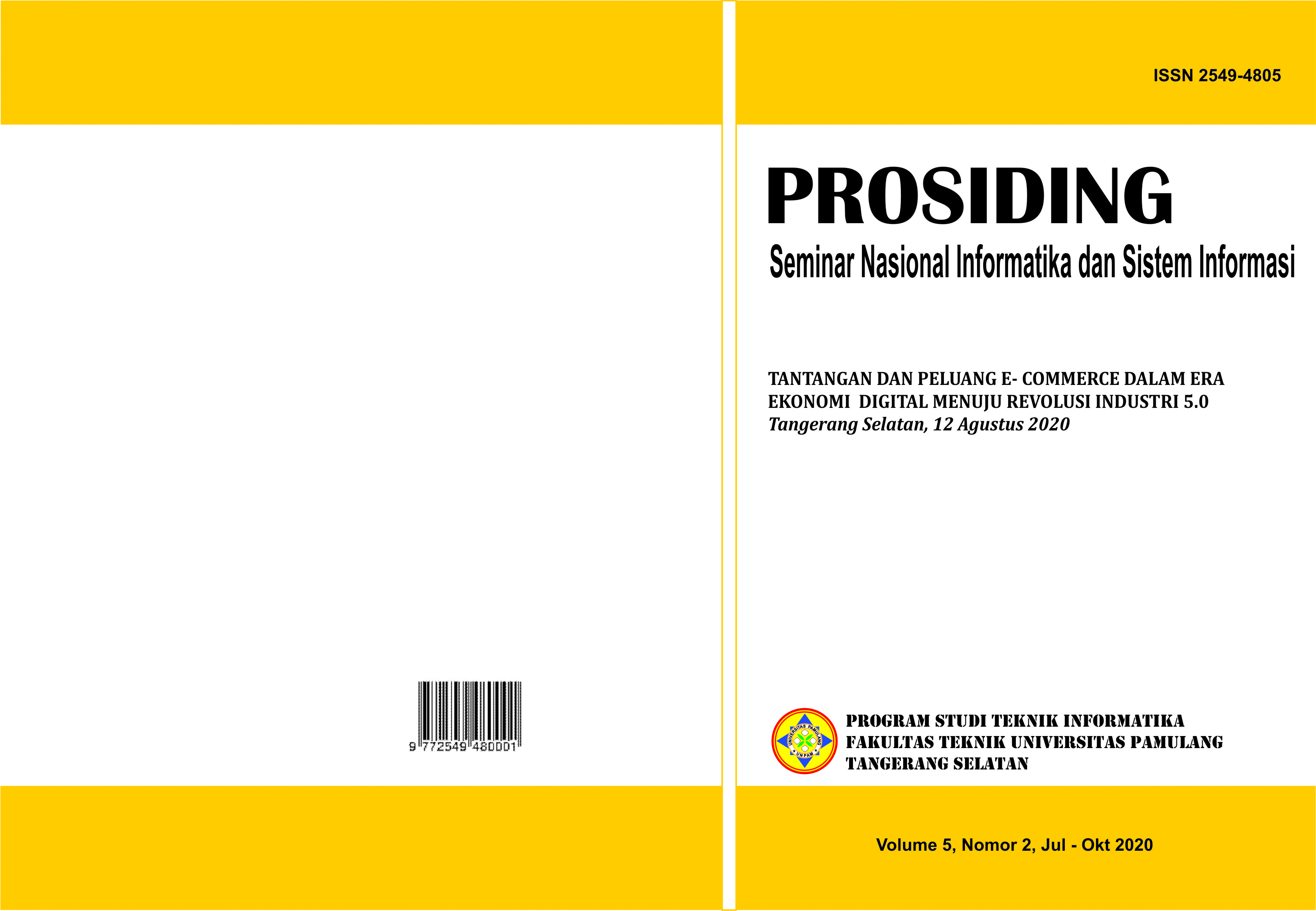ANALISIS KESULITAN BELAJAR KALKULUS MAHASISWA TEKNIK INFORMATIKA
Keywords:
kesulitan belajar, kalkulusAbstract
Tujuan dari penelitian ini yaitu untuk mengetahui kesulitan mahasiswa dalam belajar kalkulus I. Subjek penelitian ini merupakan mahasiswa Program Studi Teknik Informatika angkatan 2019. Penelitian ini menggunakan metode pendekatan deskriptif. Teknik analisa data yang digunakan adalah analasis deskriptif. Pengambilan data pada penelitian ini menggunakan tes tertulis, angket, dan wawancara. Berdasarkan hasil penelitian, diketahui bahwa tingkat kesulitan belajar mahasiswa berdasarkan hasil tes tertulis yaitu pada indikator penerapan dan analisis dengan kategori sangat tinggi. Berdasarkan hasil wawancara, mahasiswa mengalami kesulitan dalam menerapkan turunan fungsi dua peubah ke dalam soal serta kesulitan dalam menyelesaiakn soal cerita. Berdasarkan hasil pengisian angket dapat diketahui faktor penyebab kesulitan belajar dengan kategori sangat tinggi yaitu interaksi dosen dengan mahasiswa, media pembelajaran, materi dalam kalkulus I serta motivasi belajar mahasiswa.
References
Ahmadi dan Supriyono. 2003. Psikologi Belajar. Jakarta: Rineka Cipta
Djamarah Syaiful Bahri. 2002. Strategi Belajar Mengajar. Jakarta : Rineka Cipta
Hidayati, T., & Ikasari, I. H. (2020). Developing Ict-Based Calculus Learning Media. JPMI (Jurnal Pendidikan Matematika Indonesia), 5(1), 10-15.
Mutakin, T. Z. (2015). Analisis Kesulitan Belajar Kalkulus 1 Mahasiswa Teknik Informatika. Formatif: Jurnal Ilmiah Pendidikan MIPA, 3(1).
Nurmalitasari, D. (2017). Analisis Kesulitan Belajar Mahasiswa pada Mata Kuliah Kalkulus Peubah Banyak di STKIP PGRI Pasuruan. JURNAL EDUCAZIONE: Jurnal Pendidikan, Pembelajaran dan Bimbingan dan konseling, 5(1), 27-35.
Sugiyono. 2005. Memahami Penelitian Kualitatif. Bandung: CV. Alfabeta.
Downloads
Published
Issue
Section
License
Authors who publish with this journal agree to the following terms:
- Authors retain copyright and grant the journal right of first publication with the work simultaneously licensed under a Creative Commons Attribution License that allows others to share the work with an acknowledgement of the work's authorship and initial publication in this journal.
- Authors are able to enter into separate, additional contractual arrangements for the non-exclusive distribution of the journal's published version of the work (e.g., post it to an institutional repository or publish it in a book), with an acknowledgement of its initial publication in this journal.
- Authors are permitted and encouraged to post their work online (e.g., in institutional repositories or on their website) prior to and during the submission process, as it can lead to productive exchanges, as well as earlier and greater citation of published work (See The Effect of Open Access).
Prosiding Seminar Informatika dan Sistem Informasi have CC-BY-NC-SA or an equivalent license as the optimal license for the publication, distribution, use, and reuse of scholarly work.
In developing strategy and setting priorities, Prosiding Seminar Informatika dan Sistem Informasi recognize that free access is better than priced access, libre access is better than free access, and libre under CC-BY-NC-SA or the equivalent is better than libre under more restrictive open licenses. We should achieve what we can when we can. We should not delay achieving free in order to achieve libre, and we should not stop with free when we can achieve libre.
Prosiding Seminar Informatika dan Sistem Informasi is licensed under a Creative Commons Attribution 4.0 International License
YOU ARE FREE TO:
- Share — copy and redistribute the material in any medium or format
- Adapt — remix, transform, and build upon the material for any purpose, even commercially.
- The licensor cannot revoke these freedoms as long as you follow the license terms

